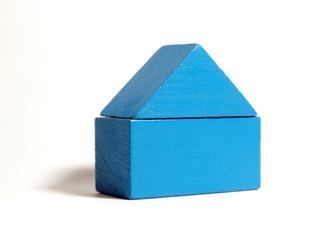Loan Modification vs. Bankruptcy: Which Is the Best Way to Stop Foreclosure?
When you're falling behind on your mortgage payments, the chance to change the terms on your loan via a mortgage modification can sound almost too good to be true.

Unfortunately, it often is.
Loan modifications have gained notoriety in recent years, as lawmakers have tried to encourage them as a solution for struggling homeowners with programs like the Home Affordable Modification Program (HAMP).
In a best case scenario, a mortgage lender will agree to a loan modification with a trial payment period. If the trial is successful, the homeowner may enjoy permanently lowered payments thanks to their new terms.
For most homeowners, however, loan modifications aren't the dream come true that lawmakers have made them out to be.
Qualifying Is a Challenge
The reality is that lenders have little incentive to offer modifications.
Since they can make more money off late fees as homeowners approach foreclosure, lenders are usually in no rush to process loan modification applications - leaving stressed-out homeowners in limbo for months. Meanwhile, lenders may be moving forward with foreclosure.
It's not uncommon for homeowners to lose their properties to foreclosure after being denied - or before being approved - for a modification.
When you're headed toward foreclosure, time is of the essence. If you don't act quickly you will lose your home and any equity you have paid into it. That's why Chapter 13 bankruptcy is often a better solution for families facing foreclosure in the near future.
Terms Aren't Always Better
Normally when you're seeking a loan, you can shop around for the best terms. But Uncle Sam requires that homeowners receive a loan modification from their own lender or from a preferred counselor.
Often times, these terms aren't significantly better than your current mortgage. Once you factor in the cost of receiving a modification, back interest that may be added back into the loan, and damage to your credit as a result of the modification, you could end up paying more per month than you do now.
Modifications May Not Stop Foreclosure
Even if you qualify for modification - and even if your new terms are an improvement over your old ones - you may still end up in foreclosure. Why? Because mortgage modification fails to address the underlying cause of most folks' financial troubles.
Mortgage payments are rarely the reason for default; other household debts, namely credit card debt, are usually the culprit.
If you're struggling with snowballing credit card debt, slightly lower mortgage payments won't offer relief for long. Until you deal with debt, your home will always be at risk.
Unlike modification, Chapter 13 bankruptcy has the ability to restructure unsecured debt into manageable payments, providing the breathing room necessary for homeowners to prioritize their mortgage.
Additionally, filing for Chapter 13 enacts an automatic stay that legally protects your home from foreclosure and other assets from repossession. And while many worry that bankruptcy will hurt credit, it's usually just the opposite.
Reorganizing debt and creating manageable mortgage payments allows you to get back on track, so you can begin rebuilding credit - and your financial future.
If you're torn between loan modification and bankruptcy, our bankruptcy attorneys can help you determine the best solution for your mortgage issues. Contact DebtStoppers at 800-440-7235 or fill out our online form to schedule your free debt consultation.
More Blog Entries:
How to Find a Good Bankruptcy Attorney When You Need Help Getting Out of Debt: April 29, 2013
Getting Credit Cards After Bankruptcy Easier Than Most Consumers Think: April 8, 2013
Resources:
What Are the Disadvantages of a Home Loan Modification? RealEstate.com

